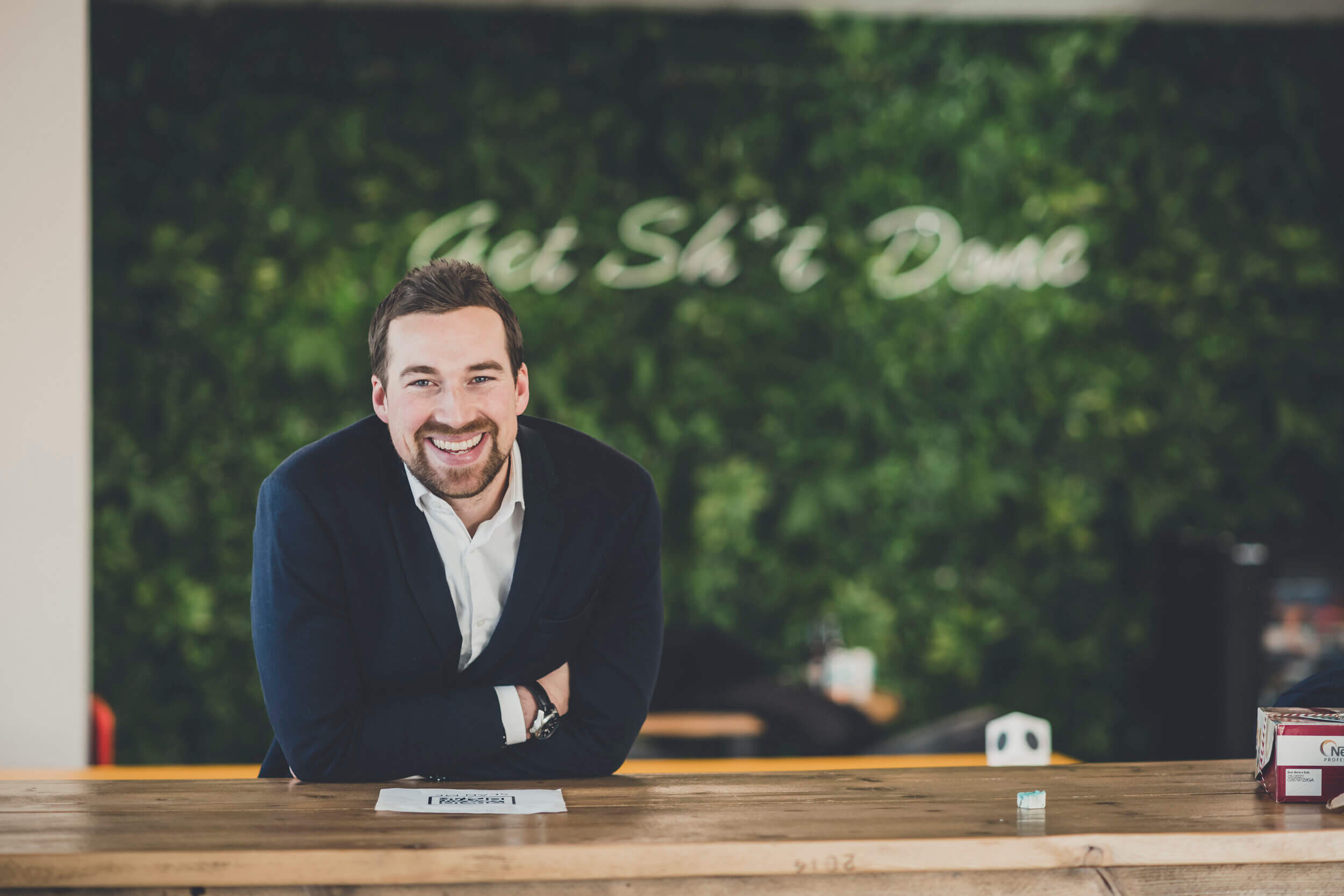March 24, 2021 Sophie Mullins
From the archives: Interview with the CEO
After founding Amber in 2009, Nick Proctor gave an interview to Startups.co.uk.
In the interview, he talked about why he turned down his dream job in order to set up Amber and outlines his long-term goals for the business – each of which he’s not only achieved but surpassed.

Tell us what your business does
We save businesses time and money on their energy bills, and help them reduce their C02 emissions.
Where did the idea for your business come from?
The idea came from the realisation that businesses were being hugely overcharged for energy. We spoke to quite a few businesses at the start and found that hundreds of thousands of pounds had been wasted by them not managing their energy contracts properly.
How did you know there was a market for it? What’s your unique selling point (USP)?
We spent a lot of time researching how businesses managed their energy contracts. We found that businesses are not very well protected when it comes to being overcharged by energy suppliers. We offer tailored energy management, which means delivering a face-to-face approach to reducing business energy costs. Our USP sits on the relationships we build; we work closer with our clients than our competitors to ensure we find the solution they require.
What were you doing before starting up?
I had just completed a graduate scheme at RBS. They had just offered me my dream promotion, so I thought it would be a very difficult decision. But it wasn’t. I woke up one day knowing that if I didn’t take the opportunity to start up a business there and then I probably never would, and I would regret it.
Have you always wanted to run your own business?
Yes, since I was a kid. I spent my university years thinking up ideas, most of which were ludicrous or had already been done. To me, being your own boss isn’t glamorous and requires you to be very aware and reflective about your own actions. What I love is the new lease of life it gives you because you can be as creative as you want, and take on whatever challenges inspire you. Ultimately, the best bit for me is in knowing I have no limitations.
What planning did you do before you started up? What advice did you seek?
Before ‘taking the plunge’, I spoke to everyone and anyone I knew about my position, my opportunity, and my idea and I valued the input they gave me. I sought advice on how to start up in general, through to identifying who I should speak to first to try and sell my product. I identified my market, the opportunities, and my product and went for it.
How did you raise the money?
I took a personal loan for a few thousand, moved home, and took on part-time work in the evenings and weekends. Its an alternative way to getting a business going but I wouldn’t change it. It’s taught me to control my costs, to only take on profitable work, and to expand via free methods first.
How did you find suppliers?
This was a major difficulty and I really had to harness some determination to get my supply contracts in place. The market had tightened up during the recession so suppliers were not willing to offer new agreements to resell their products. I used a relationship I developed with a competitor to get my foot in the door.
What challenges have you faced and how have you overcome them?
Starting a business for the first time has meant learning a few new languages. I am pretty fluent in ‘sales spiel’ but marketing and websites have been completely new to me. There are some great resources on the internet including Enterprise Nation, and Shell LiveWIRE offering support and guides to new businesses.
Where is your business based?
I am still working from home and have no aspirations to change this in the near future, unless I have to. It keeps my overheads down and allows me to invest in PR and marketing, so less dead money and more customers.
How have you promoted your business?
I made a mistake early on of signing up to an online business directory, which charged me £300 for the year and I got no business from it. Whilst it doesn’t sound like much, every penny counts at the start and this was about what I had to invest in the business each month. More recently I have started to use Google Adwords, and LinkedIn advertising. I also signed up for the Shell LiveWIRE Young Entrepreneur of the Year and have made it through to the final eight. I now get to meet Duncan Bannatyne and Doug Richards!
How much do you charge?
Most of the time it’s a bespoke price as we try to deliver what is best for our clients. We have positioned ourselves towards the ‘premium’ end of the market as we offer a tailored service that saves businesses a lot more than it costs.
What has your growth been like?
We were profitable from the third month in business due to the low costs of setting up. The first year was 95% of the level we aimed for. Growth has been strong and stable so far; there are some great opportunities on the horizon and it’s all about delivering our promises whilst keeping our existing customer base happy.
What’s the impact on your home life been like?
I work longer hours than I used to but I can work when I want which is sometimes late in to the night. Some days I work non-stop because there is a big deadline and other days I can be more relaxed. I make myself get out and work in different environments regularly and find this can really boost productivity.
What would you say the greatest difficulty has been in starting up?
Identifying decision makers and getting in front of them with an unknown brand.
What was your first big breakthrough?
A cold call to a prospect company who let me visit them. They had never met their energy broker before and the feedback was strong. I am now working with them to manage their energy contracts.
What would you do differently and what have you learnt?
I have learnt a lot and much of it has been through trial and sometimes error but that doesn’t encourage me to change things. One thing I have learnt is to do things differently to our competitors rather than follow suit. I wish I had followed this ethos sooner because it has really made a difference to my conversion rates.
What advice would you give to budding entrepreneurs?
Don’t be afraid to stand out from your competitors, be unique in your approach, and deliver a personable service that drawers you close to your clients. Do things for free if it means building relationships as you can always do business in the future.
Where do you want to be in five years time? Do you have an exit plan?
Turning over close to a million pounds and looking to start the next business. I want us to become the UK’s leading energy management company and look to grow to 30 staff before considering an exit or sale. I have lots of other business ideas I wish to pursue so hopefully this is only the start.
